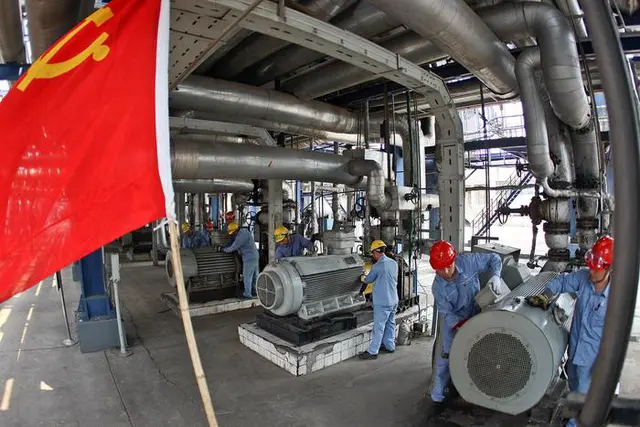By APD Writer Lu Jiafei
Washington, Oct.17 (APD) --
For the past three decades or more, Donald Trump has prided himself on being the ultimate deal maker. But with the nonsensical decision to decertify Iran’s compliance with a landmark nuclear deal, the self-claimed master of the deal not only put a well-functioning nuclear deal in peril, but rendered almost impossible another one.
With his trademark braggadocio and theatrical solemnity, Trump last weekend threatened to blow up the 2015 Iran nuclear deal unless U.S. Congress and allies “address the deal’s many serious flaws.”
“In the event we are not able to reach a solution, working with Congress and our allies, then the agreement will be terminated,” said Trump.
The threat was classic Trump. The good news is that Trump could never terminate the deal, since it is a multilateral one and other parties in the deal have already made it clear that they would stand by the nuclear agreement that has so far successfully put a halt to Tehran’s access to nuclear weapons.
However, the bad news is that with the confusing message disseminating from the Trump administration on the Iran nuclear deal, chances are the bellicose and impulsive president could get the world into another nuclear mess apart from the Korean peninsula nuclear crisis.
While Trump last week decertified Iran’s compliance with the nuclear deal according to the Iran Nuclear Agreement Review Act passed by the Congress in 2015, the move itself did not pull the United States out of the deal at the moment. Instead, it would open a 60-day window in which Congress could re-impose nuclear-related sanctions on Iran, a step amounting to violation of the nuclear deal on the U.S. side.
It’s no secret that Trump hates the Iran nuclear deal (whether nor not he truly understands the details of the pact), and the fact that he has to re-certify Iran’s compliance every 90 days makes the nuclear deal even more repellent for him.
However, based on the new Iran strategy he unveiled last week, he appeared to ask the Congress to improve, instead of abrogating the nuclear deal.
Also, the division within the Trump administration on the Iran nuclear deal went on full display, with Defense Secretary Jim Mattis and Secretary of State Rex Tillerson publicly contradicting Trump by stating that it is in U.S. national interests to stay in the deal.
With all the confusion and contradictory messages from this administration, the Congress now is forcibly handed a dilemma of keeping the deal alive while risking breaking the agreement with Trump administration’s unreasonable wish list.
It is said that the Trump administration is closely working with the Congress to push forward a bill to unilaterally impose new “trigger points” for re-imposing nuclear-related sanctions on Iran. If passed, the bill could be seen by Iranians as the United States roaming to the brink of breaking the agreement.
As to the Democratic People’s Republic of Korea (DPRK) nuclear issue, despite Trump’s repeated rhetoric, his administration has insisted that the United States is still seeking a diplomatic resolution. However, because of Trump’s dishonest remarks last Friday, his credibility was further damaged, which in turn dims the already faint hope of a possible nuclear deal with the DPRK.
In announcing his decision to decertify Iran’s compliance, Trump cited a few reasons, but all of them were either irrelevant- like when he said the Iranian government was full of bad people doing bad things- or outright false.
Shortly after Trump blamed Iran for committing “multiple violations of the agreement,” the International Atomic Energy Agency (IAEA), a UN watchdog tasked with monitoring Iran's nuclear activities confirmed for the ninth time that had been implementing the Iran nuclear deal under the robust nuclear verification regime.
No one summed up the trouble ahead for Trump better than former Vice President Joe Biden did. In a scathing statement, Biden warned that the detrimental effects of Trump’s dishonest decertification claim would ripple outward and cripple U.S. ability to resolve other challenges.
“After today, what incentive would the leadership in North Korea (DPRK) have to sit down with the United States, China, and other partners to negotiate a diplomatic resolution to the escalating nuclear crisis? After today, why would the rest of the world join us in pushing for a diplomatic solution we might not uphold? After today, what is America's word worth in the world?” wrote Biden.
Lu Jiafei, researcher of APD Institute. After spending one year in Palestine covering the Israeli-Palestinian conflict between 2013 and 2014, Lu moved to Washington, D.C. and covered the 2016 U.S. presidential election till the very end of Donald Trump’s upset victory. He is a political contributor to APD.
(ASIA PACIFIC DAILY)
 简体中文
简体中文












